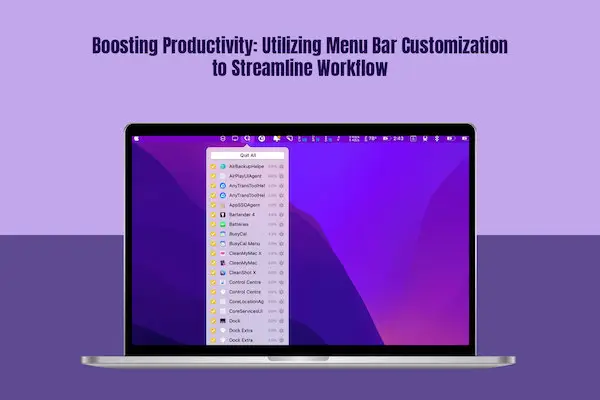Mastering the Art of Effective Healthcare Interviews
Interviewing candidates for healthcare positions requires a unique approach. The medical field demands technical expertise, strong interpersonal skills, and a commitment to patient care. This article explores strategies for conducting compelling interviews to find the best healthcare professionals for your organization.
Preparing for the Interview
Thorough preparation is key to a successful interview process. Consider these essential steps:
- Review the job description and required qualifications
- Familiarize yourself with the candidate’s resume and application materials
- Prepare a list of relevant questions tailored to the position
- Choose an appropriate interview setting
- Gather any necessary materials or assessment tools
Structuring the Interview
A well-structured interview helps ensure you cover all necessary topics and gives candidates a fair opportunity to showcase their skills. Consider using a combination of these interview types:
Behavioral Interviews
Behavioral questions ask candidates to describe past experiences that demonstrate specific skills or competencies. For example:
“Tell me about a time when you had to handle a difficult patient. How did you approach the situation?”
Situational Interviews
Situational questions present hypothetical scenarios to assess how a candidate would handle potential challenges. For instance:
“How would you respond if a patient refused a necessary treatment?”
Technical Interviews
For roles requiring specific medical knowledge, include questions to evaluate the candidate’s expertise. These involve discussing recent advancements in their field or asking them to explain complex medical concepts.
Key Areas to Assess
When interviewing healthcare professionals, focus on evaluating these critical aspects:
- Clinical skills and knowledge
- Communication abilities
- Teamwork and collaboration
- Problem-solving and decision-making
- Empathy and bedside manner
- Adaptability and stress management
- Ethical judgment
- Cultural competence
Effective Questioning Techniques
To get the most insightful responses from candidates, employ these questioning strategies:
- Use open-ended questions to encourage detailed answers
- Follow up with probing questions to dig deeper into responses
- Ask for specific examples to illustrate skills or experiences
- Avoid leading questions that suggest a desired answer
- Use silence effectively to allow candidates time to think and elaborate
Assessing Soft Skills
While technical expertise is crucial, soft skills are equally important in healthcare roles. Here are some ways to evaluate these less tangible qualities:
- Observe body language and non-verbal cues
- Pay attention to how candidates interact with staff before and after the interview
- Ask questions that reveal emotional intelligence and interpersonal skills
- Consider role-playing exercises to assess communication and problem-solving abilities
Addressing Diversity and Inclusion
Healthcare organizations serve diverse patient populations, making it essential to prioritize diversity and inclusion in hiring. During interviews:
- Ask about experiences working with diverse populations
- Assess cultural competence and sensitivity
- Inquire about language skills if relevant to the position
- Evaluate candidates’ understanding of health disparities and social determinants of health
Legal Considerations
Be aware of legal guidelines when conducting interviews to avoid discrimination and ensure fairness. Some key points to remember:
- Focus questions on job-related qualifications and skills
- Avoid inquiries about protected characteristics (e.g., age, race, religion)
- Maintain consistency in questions asked across all candidates
- Document the interview process and decisions made
Using Technology in Interviews
Technology can enhance the interview process, especially for initial screenings or remote candidates. Consider these options:
- Video interviews for long-distance applicants
- Virtual tours of the facility
- Online skills assessments or simulations
- Digital portfolios to showcase candidates’ work
Involving the Team
Including team members in the interview can provide valuable perspectives and help assess cultural fit. Options for team involvement include:
- Panel interviews with multiple interviewers
- Brief meet-and-greet sessions with potential colleagues
- Feedback from staff who interact with the candidate during facility tours
Evaluating Interview Performance
After the interview, take time to evaluate each candidate thoroughly. Use a standardized scoring system to compare applicants objectively. Consider these factors:
- Alignment with job requirements
- Cultural fit with the organization
- Potential for growth and development
- Overall impression and professionalism
Making the Final Decision
When making your final selection, weigh all factors carefully. In addition to interview performance, consider:
- References and background checks
- Results of any skills assessments or simulations
- Input from all interviewers and team members involved in the process
Remember that collaborating doctors and other healthcare professionals often work closely together, so team dynamics should be a key consideration in your decision-making process.
Looking Ahead
Once you’ve selected the ideal candidate, create a smooth onboarding process to set them up for success. This might include:
- A comprehensive orientation program
- Mentorship opportunities
- Clear communication of expectations and goals
- Regular check-ins during the initial months of employment
By implementing these strategies, you can conduct effective interviews that help you identify top healthcare talent and build a strong, capable team to provide excellent patient care.



